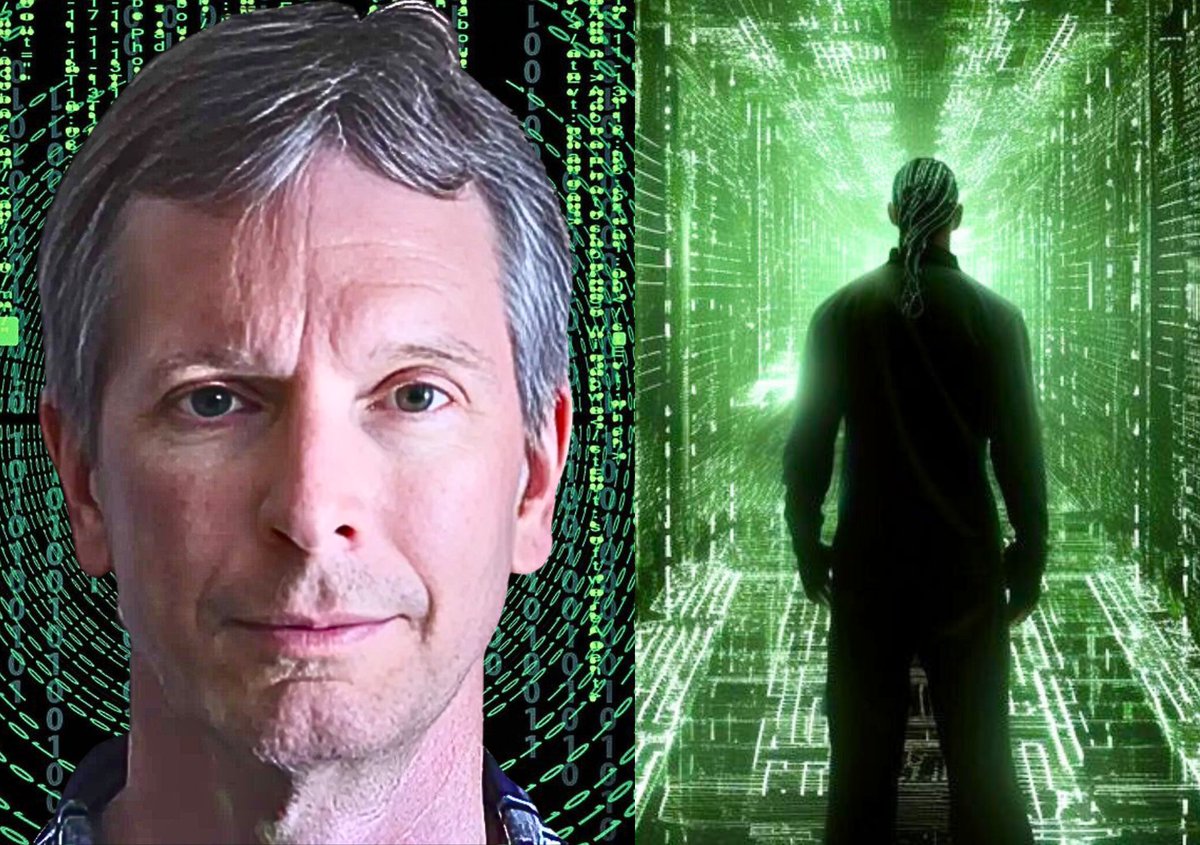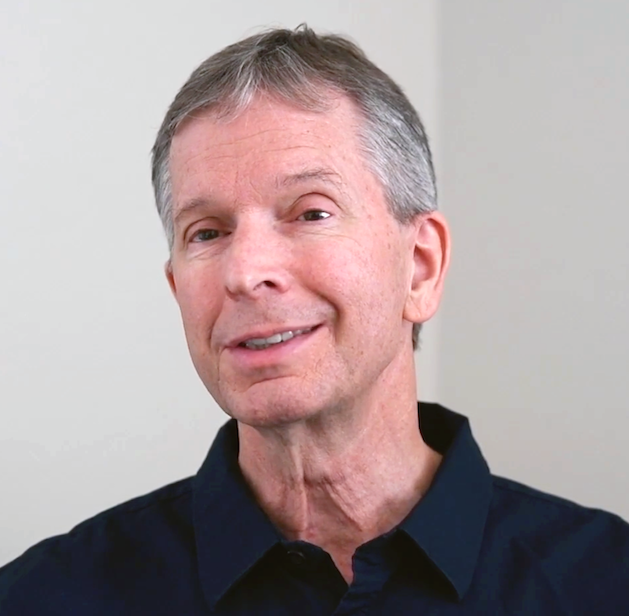This scientist says, 'Nothing you see is real.' He explains that everything we experience—space, time, the sun, the moon, and physical objects—are just part of a mental 'visualization tool' we use to interact with the world."
Donald Hoffman, a cognitive scientist and professor at the University of California proposes that in reality, the true nature of the universe is very different from what we perceive.
Dr. Hoffman proposes that rather than being created by the brain, a universal consciousness creates brain activity and is responsible for all matter in the physical world.
He says that our brains are like this virtual reality system, rendering objects like neurons only when needed. We are not truly aware of the deeper reality outside of space and time, just like a video game player doesn't know how the game engine works under the surface. Our experiences, thoughts, and feelings are part of this "simulation."
@donalddhoffman
Donald Hoffman, a cognitive scientist and professor at the University of California proposes that in reality, the true nature of the universe is very different from what we perceive.
Dr. Hoffman proposes that rather than being created by the brain, a universal consciousness creates brain activity and is responsible for all matter in the physical world.
He says that our brains are like this virtual reality system, rendering objects like neurons only when needed. We are not truly aware of the deeper reality outside of space and time, just like a video game player doesn't know how the game engine works under the surface. Our experiences, thoughts, and feelings are part of this "simulation."
@donalddhoffman

Hoffman suggests that consciousness is exploring endless possibilities, but we're limited by our human perceptions, like only being able to imagine a few dimensions or colors. He believes that by trying to understand this "visualization tool" more deeply, we can expand our minds and get closer to understanding the true nature of consciousness and reality, which is far beyond what we can currently imagine.
Donald Hoffman is saying that space-time (the idea of time and space as we know it) is not the most basic reality. Instead, something else is more fundamental. He makes a distinction between his ideas and those of others, like Nick Bostrom, who support simulation theory.
Hoffman explains that while both views agree that what we experience is not the complete truth (it's like a simulation or headset), Bostrom and others believe that space-time and physical laws are still fundamental. They think that consciousness can emerge from a computer program created by a programmer. In their view, a programmer in a different world designs a simulation where the computer's power and algorithms create conscious beings, like humans.
However, Hoffman disagrees with this. He doesn't think that space-time is fundamental, and he rejects the idea that computer programs can create consciousness.
Hoffman explains that while both views agree that what we experience is not the complete truth (it's like a simulation or headset), Bostrom and others believe that space-time and physical laws are still fundamental. They think that consciousness can emerge from a computer program created by a programmer. In their view, a programmer in a different world designs a simulation where the computer's power and algorithms create conscious beings, like humans.
However, Hoffman disagrees with this. He doesn't think that space-time is fundamental, and he rejects the idea that computer programs can create consciousness.
He argues that no theory has proven that consciousness comes from computation or neural processes. He challenges the idea that consciousness can be explained by any kind of algorithm and says that none of the current theories can explain a specific conscious experience, like tasting mint or hearing a trumpet. According to Hoffman, no one has yet explained how these experiences can come from a computational process.
He also disagrees with the idea that neurons and brain activity are fundamental to consciousness. He believes that the physical brain is just a "headset" or projection of a deeper reality that exists outside of space-time.
Hoffman is not against neuroscience research; in fact, he thinks we need more funding for it because the real challenge is to uncover the more complex reality behind the brain's neurons.
He also disagrees with the idea that neurons and brain activity are fundamental to consciousness. He believes that the physical brain is just a "headset" or projection of a deeper reality that exists outside of space-time.
Hoffman is not against neuroscience research; in fact, he thinks we need more funding for it because the real challenge is to uncover the more complex reality behind the brain's neurons.
Hoffman explains that our senses didn't evolve to show us the truth but to help us survive and reproduce. He uses the idea of "fitness payoffs" to explain this. These are the benefits we get from behaviors and perceptions that help us live and reproduce better.
Hoffman proposes that the fundamental nature of reality consists of “conscious agents” interacting with each other. These agents are the building blocks of everything we experience, and their interactions create the reality we perceive.
To support his theory, Hoffman has developed a mathematical model that describes how these conscious agents interact. This model aims to bridge the gap between subjective experiences and objective reality, providing a new framework for understanding consciousness.
To support his theory, Hoffman has developed a mathematical model that describes how these conscious agents interact. This model aims to bridge the gap between subjective experiences and objective reality, providing a new framework for understanding consciousness.
Donald Hoffman says that while mathematics is powerful and can prove many things, it only covers a small part of the true reality. He believes that even though mathematics can provide deep insights, it’s still just a tiny fraction of the bigger picture, which is far beyond what we can grasp with science or math.
He uses the example of Gödel’s incompleteness theorem to show that there’s always more to explore than our science and math can explain. Hoffman suggests that this realization is like a wake-up call: we are not just the projections or avatars we experience in the world; true reality is far more complex and infinite. He encourages doing science and math but reminds us that these are limited in understanding the full nature of reality.
Credit: youtube.com/watch?v=ffgzkH…
He uses the example of Gödel’s incompleteness theorem to show that there’s always more to explore than our science and math can explain. Hoffman suggests that this realization is like a wake-up call: we are not just the projections or avatars we experience in the world; true reality is far more complex and infinite. He encourages doing science and math but reminds us that these are limited in understanding the full nature of reality.
Credit: youtube.com/watch?v=ffgzkH…
“One can only imagine the initial reactions, centuries ago, to the early pronouncements that the earth is not flat and the stars are not near, that the earth is not the center of the universe and the sun does not revolve around the earth. The reaction was widespread incredulity. We now know that these sane people were simply suffering from the reification fallacy, mistaking aspects of the way things looked to them as true depictions of the objective world.”
“The assumption of physicalism, namely that the objective world consists of atoms, rocks, brains, and stars, is, similarly, simply the consequence of the reification fallacy. But this physicalist assumption is very dear to us. We believe it from childhood without formal instruction.”
link.springer.com/article/10.100…
“The assumption of physicalism, namely that the objective world consists of atoms, rocks, brains, and stars, is, similarly, simply the consequence of the reification fallacy. But this physicalist assumption is very dear to us. We believe it from childhood without formal instruction.”
link.springer.com/article/10.100…

According to Hoffman, neurons are part of the rendered reality our mind creates. He says neurons and brains don't exist unless we perceive them; they are illusory and have no power in our experiences.
Art by qualialife/IG
Art by qualialife/IG

• • •
Missing some Tweet in this thread? You can try to
force a refresh





